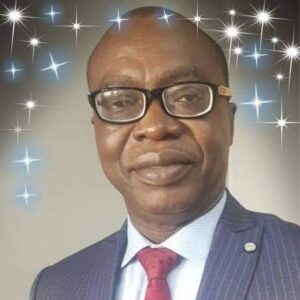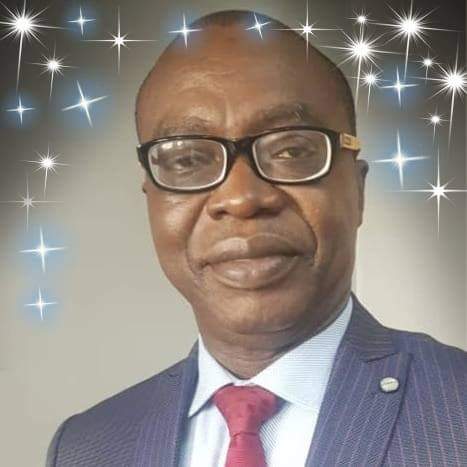INEC has commenced voter registration for the 2023 elections beginning 28 June 2021 until August.

It comes against the backdrop of some confusion in the South-East concerning its political future given recent events. INEC planned the voters’ roll initially for February 2021, and this column noted that it would play a critical role towards 2023. I called on the Igbo Nation to organise for it.
I repeat the call I made in November 2020 concerning this matter.
No excuse would suffice anymore for failing to mobilise Ndigbo to register. Where are the South-East Governors Forum, the Local Governments, and the political parties? Where are the socio-cultural and political groups of the region? Oruo la na omume.
No one should plead distraction because of the arrest and trial of IPOB leader Nnamdi Kanu. The strategic game is to ensure full participation wherever the dice rolls. The Igbo Elite Consensus is to continue with one Nigeria, seek restructuring and pursue the Presidency. Voter numbers are critical. I invite you to factor in this exercise.
INEC records show that 42 000 citizens registered in the first two days of opening the portal. More than any other region, the South-East needs to ensure that its citizens register in the required numbers and at the right places. In the 2019 exercise, the South-East posted a minor voter registration of 10.05m or 11.97 per cent. It was lower than even the distressed and war-torn North East that posted 11.2m or 13.4%. The North-West posted 20.13m or 24%, and the South-West 16.29m or 19%.
The breakdown for the South-East shows Abia, 1, 932, 892; Anambra, 2, 447, 996; Ebonyi, 1, 459, 933; Enugu, 1, 944, 016 and Imo, 2, 272, 293. The states and the entire region can do much better than what these numbers tell.
Numbers are a critical index in politics as in business. The South-East prides itself on its understanding of numbers in business. However, it fails to do so in the critical arena of the struggle for acquisition, control, and utilisation of state power, otherwise called politics. The region must now understand the numbers game in politics.
The South-East seeks, deservedly, an opportunity to run the country with its own as President come 2023.
The ground game is critical for this aspiration to count and for others to take it seriously. The ground game starts now with mobilisation for voter registration.
Adequate numbers will serve as a bargaining chip in the hard-nosed negotiations ahead for both the Presidency and reckoning in other areas in the country.
Many factors account for the region’s deficient registration, and most of it is self-inflicted. Groups who have confused young people over the past few years, canvassing against registration for the census and voting caused part of it, while a large population of the region’s people live outside.
A breakdown of the numbers would probably show a 60-40 or even 50-50 split between those who live at home and citizens outside the homeland. South-Easterners contributed to the numbers in the South-West, North Central and the North-West, and the South-South. In 2023, that rationalisation will not count. The region can minimise the numbers outside and create bulk.
Then there is the matter of voter apathy by persons from the region. There is much lamentation on the trending village square of the mobile age, WhatsApp, but not much else. Citizens do not register, attend political events, or show interest in their previously engaged citizenship activities within their towns unions. They are yet to transfer participation in village developmental activities to the political arena of parties and elected governments of legislature and executive.
The elite and the middle class are worse as they represent all bluster and no muster. The call is on the political class of the South East, the immediate beneficiaries of the political permutations if they turn out aright.
The various Igbo socio-cultural and political associations should now step up to the plate. They range from Ohanaeze through Aka Ikenga, Nzuko Umunna, Igbo Bu Igbo, the Society of Igbo Professionals, and many others.
Mobilise Ndigbo for voter registration.
The mobilisation must be total. Mobilise the people emotionally, intellectually, physically, and fiscally. Ndigbo must replicate in July and August 2021 the mass return to the homeland in December and August. They must move from the major cities outside and return to the motherland to register for voting. These groups can and should organise and sponsor transportation for willing citizens from the major hubs. Consider Lagos and Ibadan as take off for persons in the South-West. Abuja would serve persons in the FCT and neighbouring states.
The North-West should use Kaduna and Sokoto. Then Jos and Maiduguri for the North-East.
The arrest of the Bete Noire of the elite, Nnamdi Kanu, provides the opportunity for them to show relevance by mobilising citizens to register for voting. The advantages will accrue mainly to the political class. Those advantages will count for whatever be the consensus of the region on a political direction.
It is time to stop the play-acting by the elite, the middle class, and the political class. These groups need to put their money in support of their mouth and ambitions. They should pay for the mass return of our citizens to register for voting.
No, it will not suffice to call on citizens to come home. Incentivise them. Leadership involves paying the price on behalf of the many and leading the way. Leaders should earn their pips. The cost should not be a deterrent, and it is not much. We are looking at about 120-150 luxury buses over a month. Others could also sponsor PJs!
Citizens should prepare to take a one-week break for this exercise. The calculation takes two days of travel and at least two days to ensure that the registration happens. Allow for bureaucratic hiccups or inertia. Then return to your base.
The Ohanaeze Strategy Team should link with socio-cultural groups and the secretariats of all the political parties in the region.
The parties should be at the forefront. Citizen mobilisation for voting is one of the primary functions of political parties. The time is now to do so.






